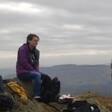Arts and Culture 6 August 2014

“Hands of Time,” from the series Portraits of Denial and Desire, 2013.
Tasneem GalleryPalestinian artist John Halaka’s body of contemporary artworks, entitled Portraits of Denial and Desire, opened recently at Tasneem Gallery in Barcelona, Spain, in an exhibition running until 19 August.
The show is described in the artist’s press release as:
diptych and triptych photographic compositions arranged to convey psychological portraits of Palestinian refugees. The images engage the viewer in a process of constructing fragmentary narratives about the lives of the individuals depicted in the photographs, while involving each observer in meditations on the history and condition of the refugees. Through this work, Halaka humanizes and personalizes the abstract notion of the displaced masses, making the experience of refugees infinitely more real, comprehensible and unforgettable.
John Halaka’s photographs are part of an ongoing multi-disciplinary project that also includes large-scale portrait drawings, an oral history video archive, a documentary film, and a book of the stories and portraits of the refugees. This narrative displays how the persistence of memory is a crucial act of political resistance and cultural survival.
Halaka, who as well as a practicing artist is Professor of Visual Art at San Diego University, told The Electronic Intifada in an interview in 2013 that his photographic artworks involving Palestinian refugees represent an engagement with and reflection on his family and people’s culture, one:
with such tremendous potential that was nearly obliterated by colonial hatred and racist belligerence and the absolute arrogance of the Western world that Arabs can be pushed out of the way and treated as less than human.
And of the photographic images included in Portraits of Denial and Desire, he noted particularly that the:
portraits, which are directly informed by the interviews, the refugees, their faces, their hands, their details. They’re not just representational but more metaphorical portraits.
The exhibition has been held in connection with an academic conference on statelessness and trans-cultural migration which took place at the United Nations University on 24-25 July.






Comments
Palestinian Refugees
Permalink John Halaka replied on
Thanks Sarah for the write up about the exhibit. I am trying to travel this exhibit of portraits and stories of Palestinian refugees to various parts of Europe, after its run in Barcelona and other parts of Catalonia. Any suggestions from you and your readers about galleries, universities exhibition centers, museums, cultural centers and other venues and names of responsible individuals to contact regarding traveling the exhibit would be much appreciated. I want the faces of the refugees to be seen, and their stories to be heard so that no one can ever say "I didn't know."
The ongoing atrocities in Gaza once again demonstrate that the Palestinians have been viewed and are treated as a "disposable people" by the colonial oppressors and their Western backers. Even 66 six years after the initial ethnic cleansing of Palestine and the countless cycles of repression and displacement that the Palestinians have endured, new waves of refugees continue to be generated by racist pogroms that are regularly and repeatedly implemented by militant Zionism.
How many millions must we lose, how many cycles of slaughter must we face, and how many generations of refugees must we endure before the world, especially those who should know better, can meaningfully say “never again”?